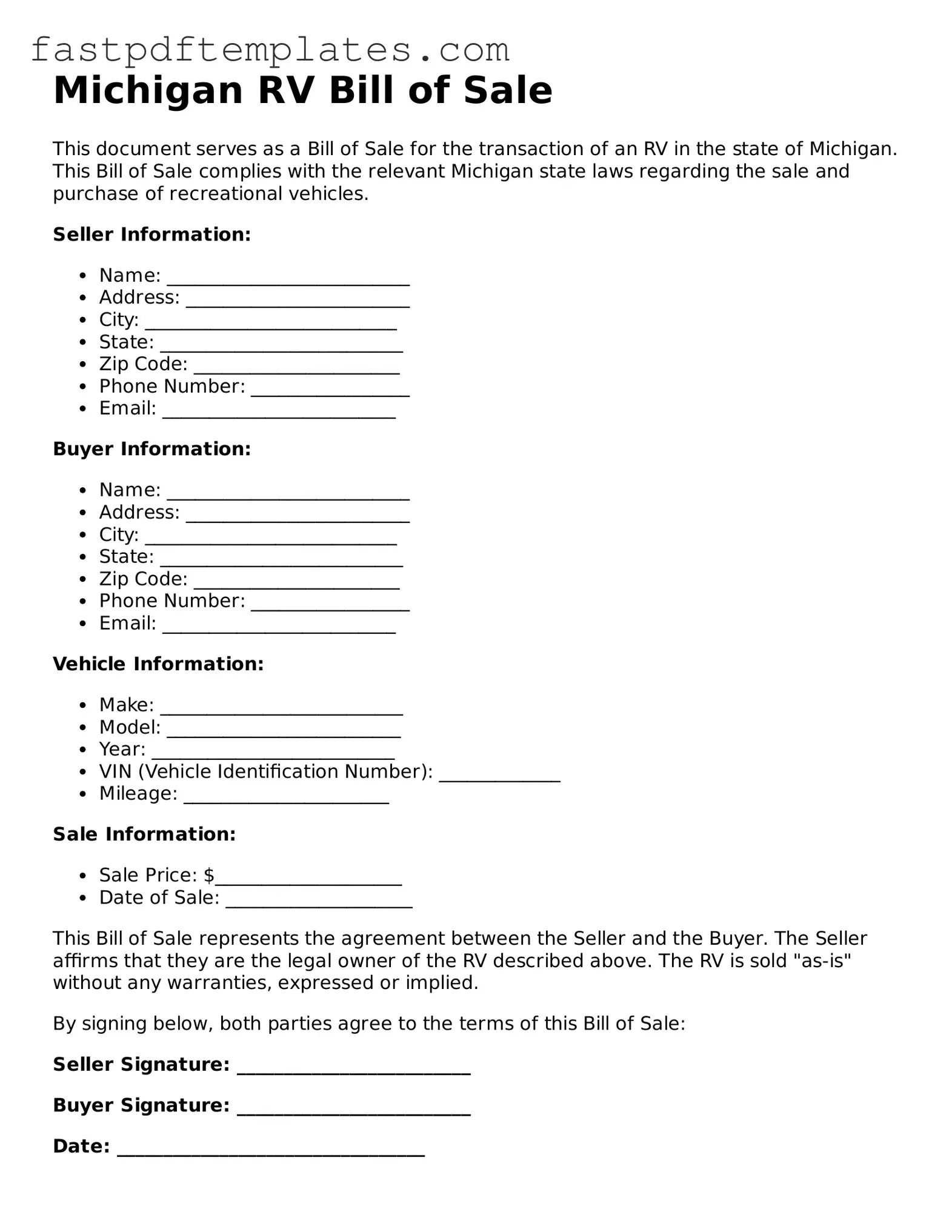The Michigan Boat Bill of Sale serves a similar purpose to the RV Bill of Sale. Both documents are used to transfer ownership of a recreational vehicle, whether it be a boat or an RV. Each form provides essential details such as the buyer's and seller's information, a description of the vehicle, and the sale price. This ensures that both parties have a clear record of the transaction, which can be beneficial for future reference or legal purposes.
Another document that mirrors the RV Bill of Sale is the Michigan Motorcycle Bill of Sale. Like the RV version, this form is designed to facilitate the sale of a motorcycle. It captures pertinent information, including the make, model, and VIN of the motorcycle, as well as the identities of the buyer and seller. This document helps establish proof of ownership and can be useful for registration with the state.
The Michigan Title Transfer form is also comparable to the RV Bill of Sale. While the RV Bill of Sale serves primarily as a receipt for the transaction, the Title Transfer form is essential for officially recording the change in ownership with the state. Both documents require similar information, such as the vehicle's details and the parties involved, ensuring a smooth transition of ownership.
The Michigan Vehicle Registration form shares similarities with the RV Bill of Sale in that it is a necessary document for legal ownership. After purchasing an RV, the new owner must register it with the state. The registration form requires information that is also found in the RV Bill of Sale, including the vehicle identification number and the owner's details, making them closely linked in the ownership process.
Additionally, the Michigan Affidavit of Ownership can be likened to the RV Bill of Sale. This document is often used when the seller does not have a title for the RV. The Affidavit allows the seller to declare ownership and provide necessary details about the vehicle. While the RV Bill of Sale is a straightforward transaction record, the Affidavit serves as an alternative means of establishing ownership when a title is missing.
Finally, the Michigan Lien Release form is another document that complements the RV Bill of Sale. If there was a loan taken out on the RV, the lien must be cleared before the sale can be completed. The Lien Release serves as proof that the seller has paid off any debts associated with the RV, ensuring that the buyer receives a clear title. Both documents work together to ensure that the transaction is legitimate and that the buyer is protected from any future claims on the vehicle.

